If you’re planning a vacation, jet lag is something to consider. However, you shouldn’t be too worried about it if you’re traveling with kids. Most parents who travel with their children say it’s better for them than it is for adults. Jet lag is a common problem many people experience when traveling to a new time zone.
It’s caused by the body adjusting to a new circadian rhythm (the natural day and night cycle). There are several things you can do to prevent or minimize jet lag. Children can sleep in new time zones better and are less affected by sleep disruption. Let’s explore jet lag and how to prevent and minimize it so that your vacation remains enjoyable.
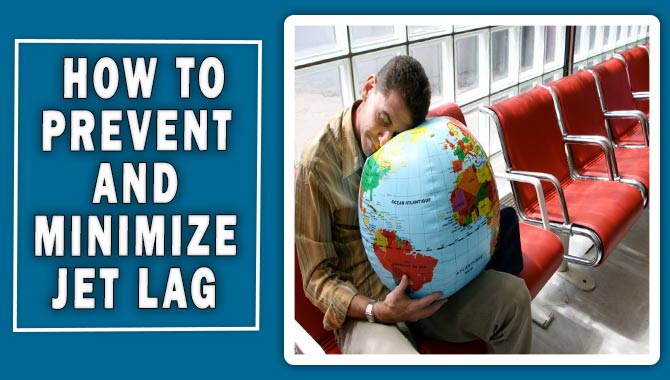
What Is Jet Lag

Jet lag is the result of traveling across time zones. It’s caused by disruptions to your body’s sleep-wake cycle and can make you feel dizzy, nauseous, and exhausted. Getting a good night’s sleep before traveling and avoiding bright light exposure can help prevent jet lag. Also, consider packing snacks and light drinks to help ease symptoms of jet lag.
When you experience jet lag, try to avoid spending too much time in the air. Instead, plan your travel so that you arrive as much as possible at your destination time zone on Earth. By following these tips, you can minimize the effects of jet lag and enjoy travel worry-free.
Ways To Prevent And Minimize Jet Lag
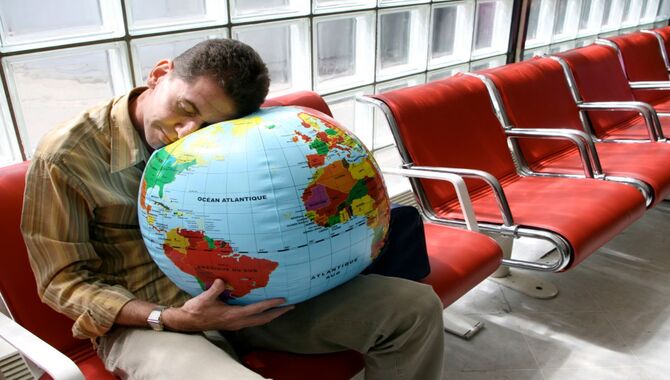
Jet lag is a common complaint among travelers. It’s all too easy to feel out of sync, tired, and grumpy when we’re trying to adjust from one time zone to another—getting a good night’s sleep before your flight is vital to prevent jet lag. This helps your body prepare for travel and reduces the chance of experiencing symptoms of jet lag.
If you need to consume caffeine or alcohol to feel alert and awake, try to avoid consuming these substances close to takeoff and landing. Besides this, avoid eating heavy meals close to takeoff and landing, as this may cause nausea and fatigue. Also, try practicing some simple exercises beforehand to reduce stress levels.
Finally, keep your travel schedule from becoming the focus of your trip- instead, focus on enjoying your time abroad and taking in the sights and sounds of a new country. Scroll down for detail in outlined sections.
Adjust Light Exposure Before Your Trip To Decrease The Time You Will Feel Jet Lagged

It’s important to start adjusting your light exposure well before your trip to minimize the time you feel jet-lagged. Bright sunlight before you leave can help to reset your body’s clock. You can also adjust your sleep schedule before you fly.
Avoid activities that will make you feel active and awake during the flight. Instead, keep a journal or list of things you plan to do while on vacation, so you remember everything important. This will help you stay organized and enjoy your time away from home.
Consider Taking Melatonin Supplements If You’re Traveling East
Melatonin is a natural sleep aid that can help you to avoid jet lag. Some people find that taking melatonin supplements before traveling helps minimize jet lag’s effects. However, others find that melatonin supplements significantly impact their sleep cycle after traveling.
If you are traveling east, we recommend taking melatonin supplements to prevent the symptoms of jet lag. Melatonin supplements are available over the counter and can be taken 2-3 hours before bedtime. They are also safe for use during pregnancy and breastfeeding. Consider taking melatonin supplements if you’re planning an east or west trip.
Try To Sleep During Your Flight
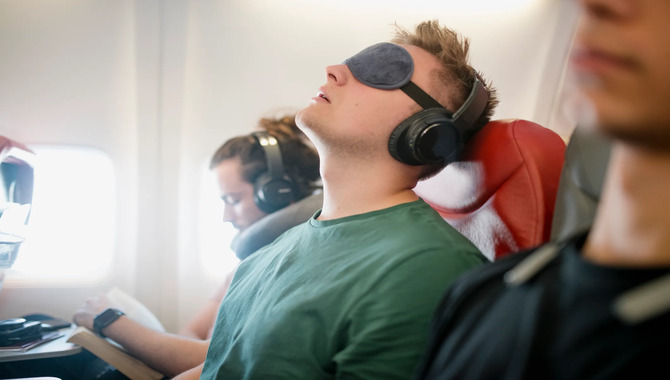
It is essential to sleep during your flight. Try sleeping for a tight period before your flight and avoid alcohol and caffeine. However, it’s important to only sleep for a short time or more than the standard eight-hour time frame. Avoiding bright lights and loud noises before your flight can also help prevent jet lag.
When traveling across time zones, it’s important to be aware of the symptoms of jet lag and take steps to minimize them. Try sleeping during your flight and ensuring you stay well-rested on the day of your arrival to ensure a speedy recovery.
Time Your Flight

The best way to prevent jet lag is to time your flight properly. Try using an online tool to help plan your travel schedule. Additionally, it is important to avoid stimulants such as caffeine and alcohol before your flight. This will help ensure you have enough energy for the long flight.
Upon arrival, avoid bright lights and heavy activity, as these could affect your sleep cycle. After a few hours of adjusting, take supplements or drink water to help you adjust to the new time zone.
Finally, avoid activities that are likely to be strenuous upon arrival (such as outdoor activities) and instead focus on sleeping, eating well, and relaxing. Taking these steps can help minimize the effects of jet lag and enjoy a comfortable stay in your new destination.
Avoid Long Layovers In Extra Time Zones If You Can
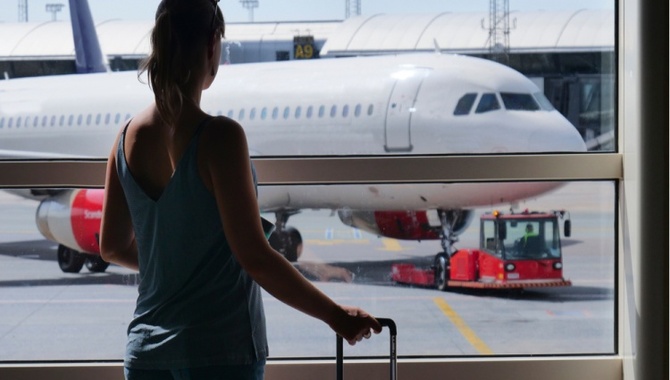
Try to avoid long layovers in extra time zones. This will minimize the amount of time you spend in a new time zone. When traveling, sleep as much as possible while in your new time zone. Keep light exposure to a minimum, and avoid bright lights and noise when arriving in your new time zone.
These steps will help you adjust more quickly and feel refreshed when you return home. Also, avoid long-term daylight exposure after arriving in your new time zone. This can lead to melatonin suppression and promote jet lag symptoms over time.
Say No To In-Flight Coffee, Caffeinated Soda, And Alcohol
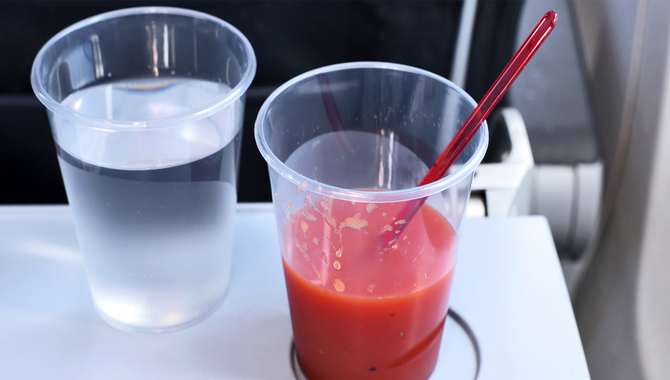
In-flight coffee, caffeinated soda, and alcohol can disrupt your natural sleep cycle and lead to jet lag. To help avoid the worst effects of jet lag, try to avoid drinking these beverages before bedtime. Additionally, avoid drinking these beverages on long flights to minimize the severity of the symptoms.
Adjust your schedule for the first few days of your trip to avoid the symptoms of jet lag. Also, take naps during the day to help you catch up on sleep. You can ensure quality sleep while traveling by taking steps to prevent and mitigate jet lag.
Limit Naps In The Days Following Your Arrival

Jet lag is the most common travel-related complaint caused by the time difference between your destination and your home time. Reducing the amount of sleep you take in the days leading up to your flight can help minimize the effects of jet lag. To help ensure a good night’s sleep, limit naps to only two hours in the days following your arrival. This will give you time to adjust to the new time zone and avoid feeling groggy in the morning.
In addition to limiting naps, it’s important to avoid caffeine and alcohol in the days leading up to your flight. These substances can worsen jet lag symptoms and make it harder for you to get a good night’s sleep. Instead, stick to water and healthy snacks when traveling for better overall health and fitness during your journey.
Bring Earplugs And A Sleep Mask

A travel pillow can be a great way to help prevent jet lag. It can help reduce the amount of pressure on your neck and head. Additionally, earplugs and a sleep mask can help to prevent noise from disturbing your sleep and disrupting your circadian rhythm. It’s important to avoid heavy meals or drinking alcohol before bedtime to ensure that you get the most out of your trip, as these activities will make it harder to fall asleep.
If you are traveling for work, schedule meetings and presentations at the local time rather than in your destination’s time zone. This will keep your body and brain adjusted to the new time zone without disrupting your sleep cycle. Additionally, it’s important to get up simultaneously every day so your body and brain can adjust to local time.
Do Children Get Jetlagged?

Jet lag is a common traveler’s problem and affects most people at least once during their lifetime. It happens by the time zone difference between your destination and the time zone of where you are traveling to. This time zone disparity causes fatigue, irritability, and sleepiness.
Avoiding travel during the daytime can help minimize jet lag. Children can also be provided with plenty of fluids, light exposure, and sleep. You can prepare your child for jet lag by allowing them to adjust gradually to a new time zone before exposing them to excessive activity or light exposure. In addition, you can pack a sleep mask, earplugs, and a comfortable sleep shirt when traveling with your child to minimize sleep deprivation.
Jet Lag Doesn’t Have To Ruin Your Vacation Plans

To prevent and minimize jet lag, follow a travel-safe meal plan to avoid feeling bloated and sick while on your trip. Avoiding caffeine and alcohol close to bedtime can also help you sleep better and feel more rested the next day. Get a good night’s sleep before your flight.
Try to get up at the same time every day and avoid screens in the evening. Finally, take steps to prevent jet lag before you leave. Try to stay out of bright light as much as possible and eat light meals the day before your flight. Taking these simple steps means avoiding jet lag and enjoying your trip without any hassles.
Jet lag can be a real pain, but it doesn’t have to ruin your vacation plans. There are a few things you can do to minimize the effects of jet lag on your body and mind. Here are three tips:
- Get plenty of sleep before your trip. Most people need at least eight hours per night when traveling, but aim for ten or even 12 if possible. This will help reduce feelings of fatigue and improve overall energy levels.
- Eat light meals and snacks throughout the day to avoid feeling hungry or cranky during travel time. Avoid heavy foods and drinks that could make jetlag worse (alcohol, caffeine, etc.).
- Limit exposure to bright lights while flying because they disrupt circadian rhythms. Try wearing blackout shades or avoiding sunlight altogether until you adjust back to local time.
Conclusion
As you can see, there are a number of ways to prevent and minimize jet lag. You also need to understand that your body sometimes needs time to adjust to the new time zone. So, relax when it comes to taking care of yourself for the first few days. The next time you’re traveling and experience jet lag, try these tips for a smoother travel experience.
A restful sleep coupled with the right food and drink will help you adjust to your new time zone as quickly as possible. Traveling east? Avoid long layovers in extra time zones if you can. If you’re planning to nap while traveling, keep it short and light.
To aid with sleep, bring your favorite bedtime music and a sleep mask. If you or your loved ones are prone to getting jet lag, visit an acupuncturist who can help you out with acupuncture therapy that targets the body’s internal clock to reset it.
Frequently Asked Questions:
1.What Are The Best Ways To Prevent And Minimize Jet Lag?
Ans. There are many ways to prevent and minimize jet lag, but here are a few of the most common:
- Consider traveling to a destination several weeks in advance to allow your body time to adjust.
- Avoid drinking alcohol and eating heavy meals on the day of your flight.
- Get a good night’s sleep before your flight.
- Take supplements such as melatonin to help you adjust to the new time zone.
2.How Can I Get More Sleep During A Flight?
Ans. Most people need at least eight hours per night when traveling, but aim for 10 or even 12 if possible. This will help reduce feelings of fatigue and improve overall energy levels. Try to schedule your flights in time zones that are close to each other so you don’t have too much time difference between destinations. Alternatively, take melatonin before bedtime to help you get a good night’s sleep on the plane.
3.What Is The Best Way To Protect Me From Jet Lag?
Ans. Wear blackout shades or avoid sunlight altogether until you adjust back to local time. Be sure to drink plenty of water and caffeine-free fluids during the flight to avoid feeling thirsty or having a dry mouth. Also, try chewing gum or sucking on ice cubes to relieve stress and keep your mouth moist.
4.Are There Any Supplements That Help With Jet Lag?
Ans. There are few supplements that help with jet lag, but melatonin is a popular choice for many people. Melatonin is a hormone that helps to regulate sleep time and wake time and is often taken by people when they experience jet lag. Some people find relief from jet lag by drinking plenty of water and avoiding caffeine. This is because both caffeine and water can thwart the body’s natural ability to rest and relax during jet lag.
5.How Do Flight Attendants Avoid Jet Lag?
Ans. Before a flight, many flight attendants take measures to prevent jet lag. This includes adjusting the cabin temperature, providing light snacks and beverages, and playing calming music.

Leave a Reply